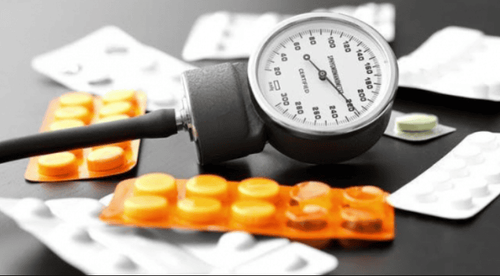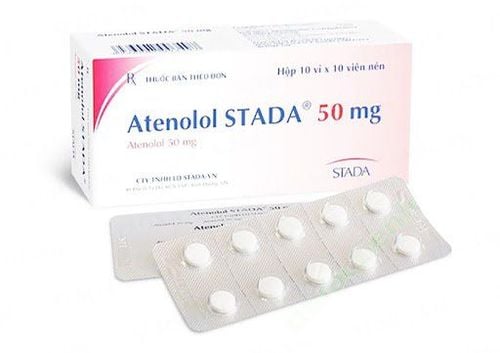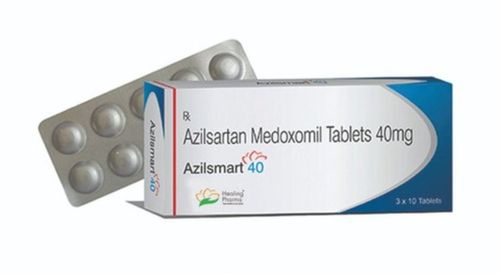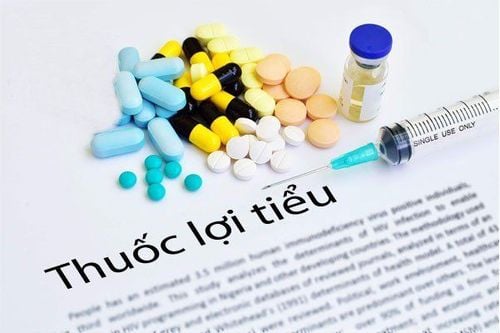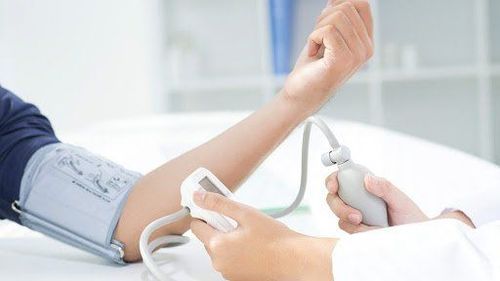This is an automatically translated article.
All people with high blood pressure are advised to make healthy lifestyle changes. Whether or not you take blood pressure medication depends on your blood pressure readings and your risk of developing problems like a heart attack or stroke. However, like other medications, blood pressure medications carry the potential for side effects.
1. Medicines to treat high blood pressure
Most hypertensive patients only take antihypertensive drugs as monotherapy in the early stages. When hypertension moves to stage 2, patients need to use a combination of 2 drugs to treat high blood pressure:
Diuretics: This is a group of drugs that help the kidneys remove fluid and salt from the body, thereby reducing blood pressure. preload and help lower the patient's blood pressure. Beta-blockers : The effect of slowing down the heart rate and less work of the heart muscle; ACE inhibitors: Vasodilating effect, lowering blood pressure; Angiotensin II receptor blockers (also known as ARBs) work in a similar way to ACE inhibitors; Calcium channel blockers: Dilate blood vessels by reducing the influx of calcium ions into cells. Some antihypertensive drugs are not used regularly, including:
Alpha sympathomimetic drugs: The effect of vasodilating blood vessels, lowering blood pressure; Vasodilators: Acts on vascular muscle and dilates blood vessels; Renin inhibitors: This is a new class of drugs in the treatment of hypertension, which work by reducing the amount of the precursor angiotensin, thereby dilating the patient's blood vessels.
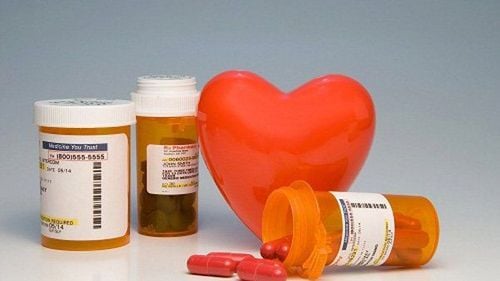
Thuốc chẹn kênh canxi để điều trị cao huyết áp, bệnh tim mạch
SEE ALSO: High blood pressure medication, why take it for a long time?
If your blood pressure is between 130/85mmHg and less than 140/90mmHg, you are in the pre-hypertension stage. Treatment at this stage includes lifestyle changes to lower blood pressure to normal levels. Besides, drugs to treat hypertension with drugs are rarely used in this period.
If your blood pressure is between 140/90mmHg and less than 160/100mmHg, you have stage 1 hypertension. Treatment during this stage should consider the following:
If you have no disease or risk factors Otherwise, your doctor may recommend lifestyle changes and repeat blood pressure checks after a few months. If your blood pressure remains between 140/90 and less than 160/100mmHg, your doctor may recommend blood pressure medication to treat high blood pressure. In some cases of disease or other risk factors, your doctor will combine antihypertensive medications with lifestyle changes. If blood pressure is equal to or higher than 160/100mmHg, it means stage 2 hypertension or higher. Patients should be prescribed blood pressure medication combined with non-pharmacological measures such as lifestyle changes.
Before making a final diagnosis of hypertension, the patient should have his or her blood pressure checked at home or somewhere other than a doctor's office or in a hospital to rule out hypertension. white coat pressure (physician-associated hypertension).
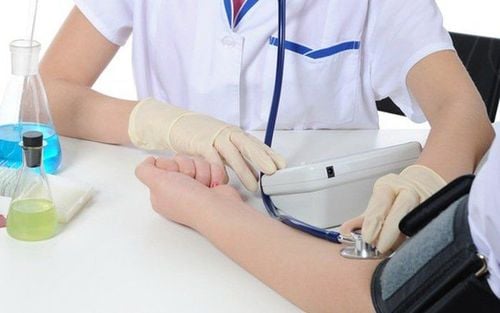
Bệnh nhân nên kiểm tra, đo huyết áp phòng khám bác sĩ để loại trừ trường hợp tăng huyết áp áo choàng trắng
2. Side effects of blood pressure medication
Most of the classes of antihypertensive drugs are easy to use, but almost all drugs have certain side effects. However, side effects from blood pressure medications are usually mild and may go away with time. Some common side effects of blood pressure medications include:
Calcium channel blockers lower blood pressure by widening and dilating blood vessels in the patient's body. Common in this group include amlodipine, felodipine, and nifedipine. Others are less commonly used because of their less effective antihypertensive effect, such as diltiazem and verapamil. Possible side effects of this class of blood pressure medications include headache, swollen ankles, and constipation. ACE inhibitors have a vasodilator effect, lowering blood pressure. These drugs include enalapril, lisinopril, perindopril, and ramipril. The most common side effect is a persistent dry cough. Other undesirable effects may occur such as headache, dizziness and rash. Angiotensin-2 receptor blockers (ARBs): ARBs work in a similar way to ACE inhibitors. This class of drugs is often prescribed when ACE inhibitors cause bothersome side effects for the patient. Diuretics: This class of blood pressure medications is indicated when calcium channel blockers cause unpleasant side effects. Commonly this group includes indapamide and bendroflumethiazide. Possible side effects include dizziness when changing positions, feeling thirsty, frequent bowel movements, and rash. In addition, electrolyte disturbances such as hypokalemia or low blood sodium may occur with prolonged use. Beta-blockers: Controls blood pressure by slowing the heart rate and making it work harder for the heart muscle. In the past, beta-blockers were the common class of antihypertensive drugs, but now tend to be used only when other treatments are ineffective because beta-blockers are considered to be less effective in lowering blood pressure. other blood pressure medications. Common drugs of this class include atenolol and bisoprolol. Side effects of this blood pressure medication include dizziness, headache, fatigue, and cold hands and feet.
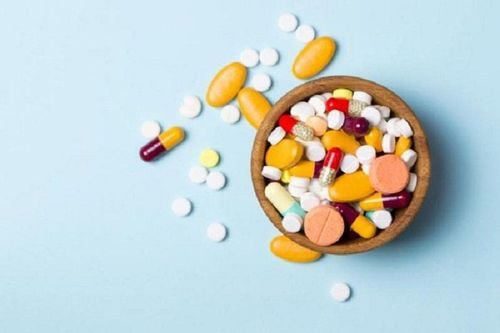
Thuốc chẹn beta là nhóm thuốc thường được sử dụng để điều trị tăng huyết áp
Inform the treating doctor as soon as possible if the patient develops the above side effects or when the unwanted effects cause discomfort to the patient. Changing the time of use, the dose of the drug can limit the side effects.
Patients must absolutely not change the dose or stop the drug suddenly. Talk to your doctor before making any changes. Taking blood pressure medications along with many other medications can change how well they are absorbed into your body. Vitamins, supplements, certain foods or alcohol can change the action of blood pressure medications, thereby affecting the patient's blood pressure-lowering effects.
3.Measures to control blood pressure without drugs: Lifestyle changes
To control high blood pressure, patients may need to change some issues in their habits and lifestyle. Some changes will lower blood pressure as early as a few weeks, but others will take longer.
Cut the patient's salt intake to less than 6g per day, equivalent to about a teaspoon of table salt. Patients need to learn ways to reduce salt intake in the daily diet; A balanced, low-fat diet with plenty of fresh fruits and vegetables; Active lifestyle, exercise more often; Limit alcohol; Weight loss: Maintain ideal weight through BMI and get advice from doctors on weight loss measures in overweight and obese patients; Do not use caffeinated beverages such as coffee, tea; Quit smoking. Patients can apply these non-pharmacological treatments at any time, regardless of whether you are taking medication for high blood pressure.
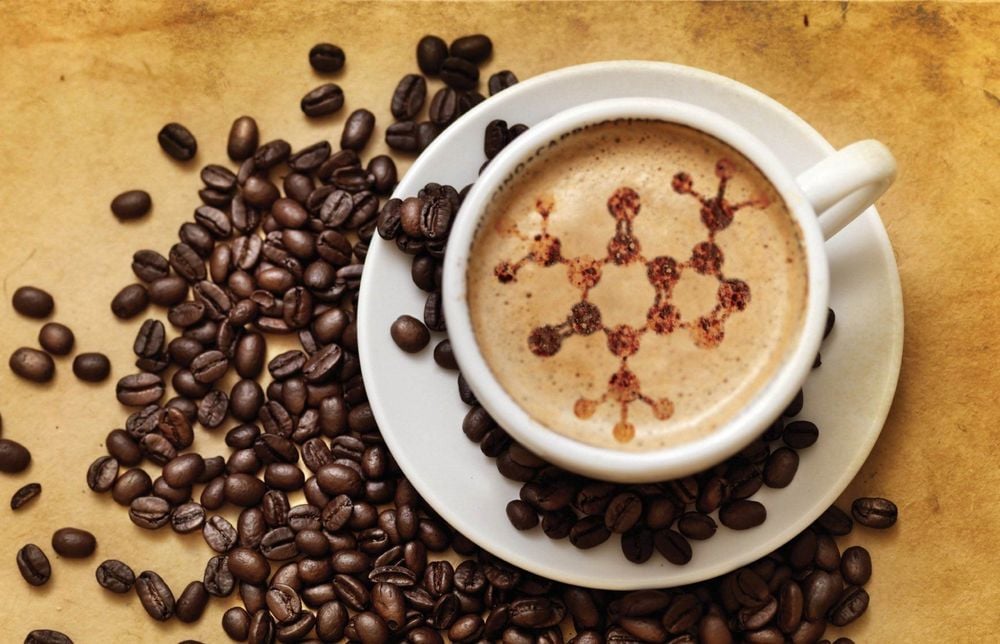
Không sử dụng đồ uống chứa caffeine giúp kiểm soát bệnh tăng huyết áp
4. Hypertension in the elderly
Target blood pressure when treating people over 80 years old is less than 150/90mmHg when measured in the clinic or hospital and less than 145/85mmHg for blood pressure readings at home.
The benefits from taking medication to lower blood pressure in patients under 80 years of age are more apparent when compared with the benefits for patients over 80 years of age. Currently, experts recommend that patients turning 80 years old who are taking antihypertensive drugs can continue treatment as long as it still helps patients and does not cause side effects. If a patient is diagnosed with hypertension and is over 80 years of age, the physician should consider other health risk factors before deciding whether to give the patient antihypertensive medication.
To help patients identify the causes, complications and levels of hypertension, Vinmec International General Hospital now has a Basic Hypertension Checkup Package and an Advanced Hypertension Checkup Package. The advantages of high blood pressure screening at Vinmec International General Hospital include: The medical team - doctors are leading experts, highly qualified, dedicated and devoted to the benefit of the patient. bring high efficiency in medical examination and treatment; Comprehensive and professional medical examination, consultation and treatment services; System of modern equipment, supporting effective diagnosis and treatment; Modern, civilized, luxurious and sterile medical examination and treatment space.
Please dial HOTLINE for more information or register for an appointment HERE. Download MyVinmec app to make appointments faster and to manage your bookings easily.
References: medlineplus.gov, webmd.com, nhs.uk



